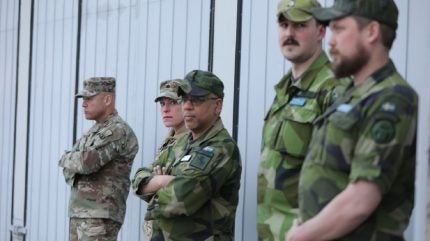
The Swedish Government has agreed to US military presence in its territory under the Defence Cooperation Agreement (DCA).
It is believed to be “a natural extension of Sweden’s Nato membership and the changing conditions for Sweden’s security policy,” explained Sweden’s Ministry of Defence.
According to the DCA, the cooperation is based on Sweden’s consent and is conducted with full respect for Swedish sovereignty, Swedish legislation and international obligations.
DCA does not violate Sweden’s policy that, as in other Nordic countries, there is no reason to deploy nuclear weapons or permanent bases on Swedish territory in peacetime.
Entering into this agreement does not alter this position, which was previously expressed within the framework of Sweden’s Nato application. Sweden’s application to join Nato had broad support in the its governing body, the Riksdag, without reservations. “This position remains unchanged,” the government affirmed.
Presence is deterrence
“With the DCA, Sweden can receive early, swift and effective military support from the United States in a deteriorating security situation, which is carefully regulated and based on Swedish consent,” said the Minister for Defence Pål Jonson.
“Therefore, the agreement acts as a deterrent and is stabilising. It reduces the risk of war breaking out and makes Sweden safer.”
The Baltic model
This follows similar military presence in Lithuania, where there has been an uniterupted, rotational presence since 2019.
Current US batallions serving in Pabradė, in the east of the country, around 360 miles from the border with Belarus, a key Russian ally, are the Hounds Battalion, 67th Armour Regiment and the Battle Kings Battalion. The Baltic nation also hosts German forces in a similar capacity.
On 21 February 2024, the former Lithuanian Defence Minister, Arvydas Anušauskas, pledged to build permanent infrastructure to support these rotational units of US troops. The country has already made efforts to accommodate German forces in Nato’s Enhanced Forward Presence Battle Group as well as the 4,000 troops it agreed to send on a bilateral basis.








